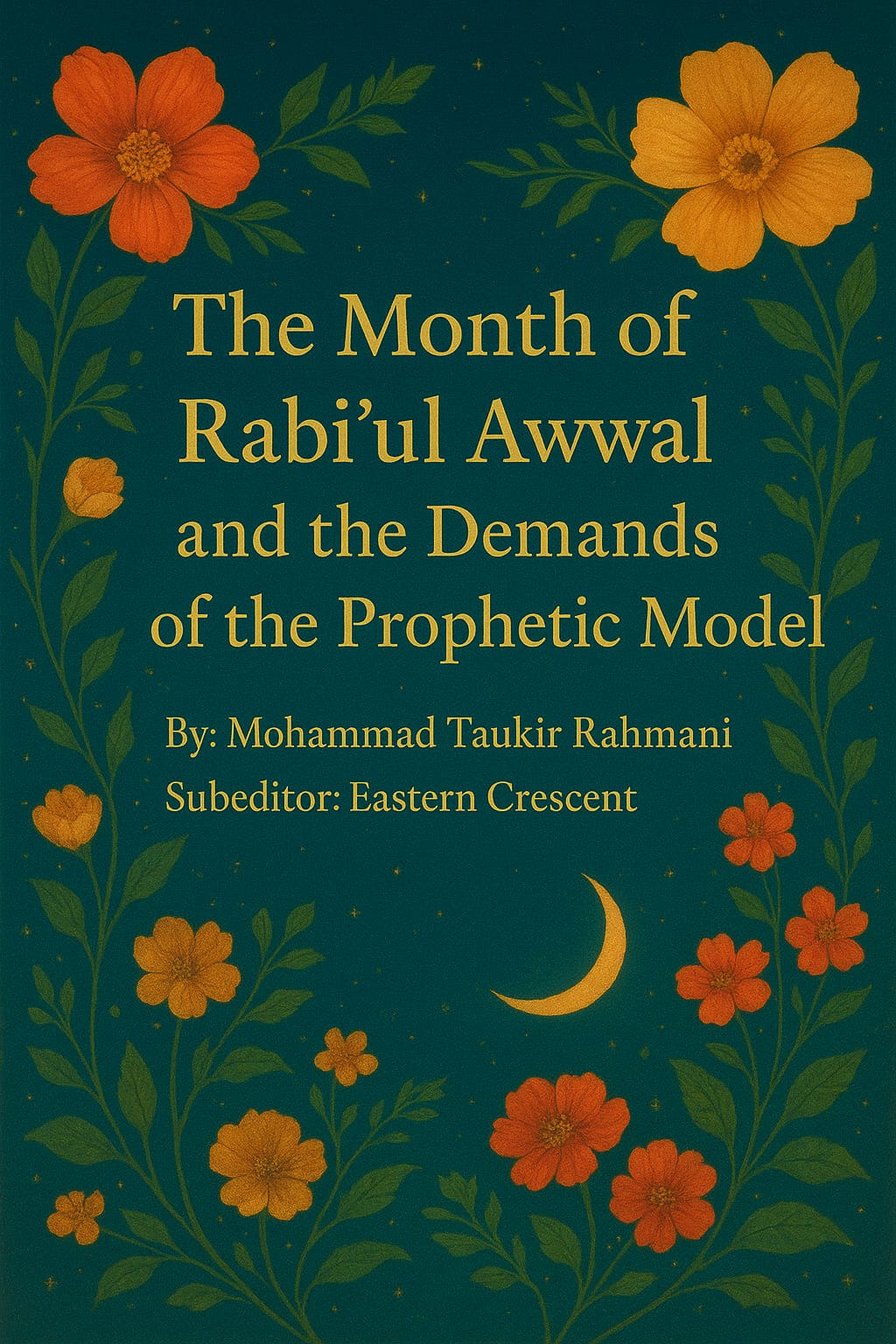
The Month of Rabi‘ul Awwal and the Demands of the Prophetic Model
The Month of Rabi‘ul Awwal and the Demands of the Prophetic Model
By Mohammad Taukir Rahmani
Subeditor: Eastern Crescent
Rabi‘ul Awwal is not a mere mark on the calendar; it is a chapter of destiny. It was in this month that a light dawned upon a world lost in darkness. The birth of the Prophet Muhammad ﷺ was not an event for one tribe, one region, or one era—it was the arrival of mercy for all creation. That mercy was not abstract; it breathed through every corner of existence—felt in the winds, seen in the innocence of animals’ eyes, and experienced in the compassion he spread among human beings. The real challenge before us is this: shall we reduce this month to outward festivity, or shall we let its spirit shape the way we live?
The Prophet ﷺ embodied a truth the world still struggles to grasp—that a hungry stomach can be endured, but a needy person must never be turned away. He tightened stones upon his own stomach in hardship, yet he did not allow the poor to return empty-handed. If we claim to walk in his footsteps, how can we justify abundance in our homes while children next door sleep hungry? What does discipleship mean if it does not awaken us to the suffering around us?
In one of the most powerful pledges of justice, the Prophet ﷺ said: “Whoever dies in debt, I will repay it on his behalf.” This was not a gesture of sympathy—it was a declaration that no person should leave the world with dignity crushed by debt. Imagine if today we lightened the burdens of those around us—pardoned debts, offered relief, carried part of their weight. How many lives would be transformed from despair to hope?

The mercy of the Prophet ﷺ was never a philosophy written on paper—it was mercy in motion. At Ta’if, when stones left him bleeding, he did not curse those who harmed him; he prayed for their guidance. On the day of Makkah’s conquest, when his enemies stood powerless before him and he held complete authority, he uttered only: “There shall be no blame upon you today.” If such was his greatness in the face of cruelty, what excuse do we have for holding grudges over trivial matters? Rabi‘ul Awwal is a reminder that love for him demands a heart open to forgiveness and reconciliation.
True connection to the Prophet ﷺ is not tested by slogans but by how we treat those around us. The neighbor’s hunger, the orphan’s smile, the dignity of the elderly—these are the scales of sincerity. If we want our relationship with him to be more than a claim, then this month must become a month of learning and living his Sunnah. His model should echo in our homes, our gatherings, our schools, and most of all, in our personal conduct. Knowledge without character is a body without soul. In every household, special arrangements should be made for the study and discussion of the Seerah of the Prophet (ﷺ), with the participation of all family members being obligatory.
To honor him means choosing truth over falsehood, silencing gossip and slander, and turning idle time into meaningful service for humanity. It means breaking barriers of caste and status, reaching the most vulnerable, and being the shoulder for those bent by hardship. Carrying forward his mission is not an option—it is our obligation.
The decision lies before us: will we remain spectators, content with words and celebrations, or will we rise as followers determined to reflect his light in our daily lives? If even a spark of compassion glows within us, we must let our actions carry his message—because actions speak louder than chants.
Love for the Prophet ﷺ is not proven by poetry alone, nor by loud claims of devotion. Real love is measured in practice. He himself said: “Whoever revives my Sunnah has truly loved me.” If our lives remain immersed in heedlessness, if our days are consumed by trivialities, can we truly call it love? No—true devotion means abandoning the frivolous and aligning life with the Prophetic model—the highest standard of humanity. Love for Muhammad ﷺ must show itself in gentle words, compassionate hearts, and truthful deeds.
O community of Muhammad ﷺ! You are indebted to a benefactor whose favors are countless. He drew humanity from the caves of ignorance into the light of knowledge. He restored freedom to slaves, dignity to women, and care to orphans. He placed upon humanity the crown of human worth. Shall we repay such favors with neglect, or by living his message with integrity?

Slogans will never be enough. True honor requires prayer, Qur’an, charity, remembrance, and above all, tongues ever fragrant with blessings upon him. Salawat is not a ritual—it is a bridge of nearness. The Qur’an declares: > Indeed, Allah and His angels send blessings upon the Prophet. O you who believe, send blessings upon him and greet him with peace.
So, O community of Muhammad ﷺ, ask your heart: will you remain silent while the entire creation sends blessings upon him? Will your tongue stay still when even the angels and the Creator Himself send prayers upon him? If there is true love in your heart, let your lips glow with salawat and your life reflect his Sunnah.
This is the path of genuine devotion, the way to inner peace, and the road to salvation. To live the Prophetic model is not only the demand of Rabi‘ul Awwal—it is the need of every moment of our lives.
You May Also Like
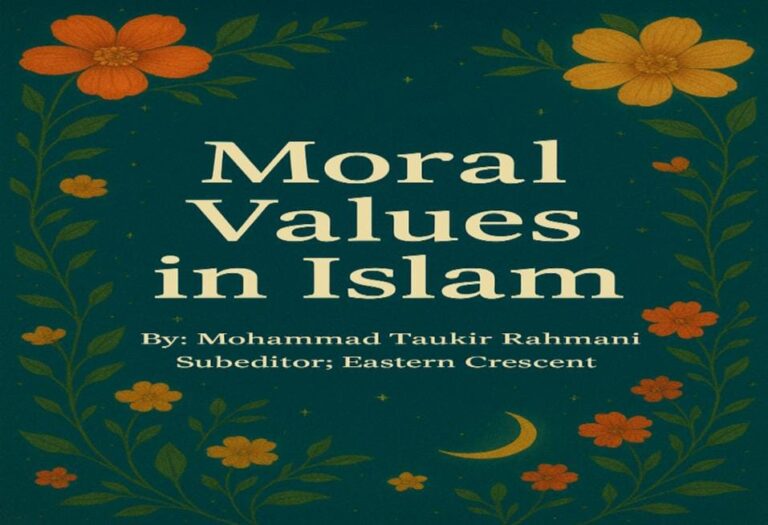 Prophetic Injunctions
Prophetic InjunctionsMoral Values in Islam
Moral Values in Islam By: Mohammad Taukir Rahmani Subeditor: Eastern Crescent Moral values in...
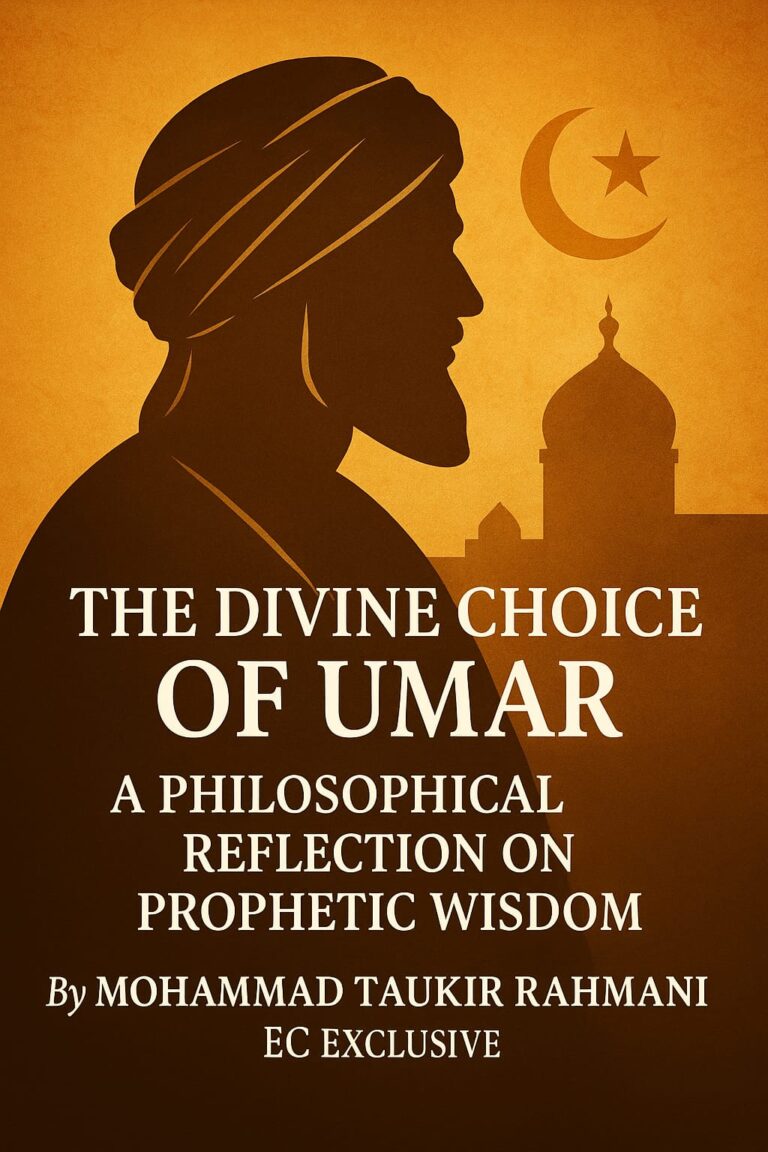 Islam
IslamThe Divine Choice of Umar: A Philosophical Reflection on Prophetic Wisdom
The Divine Choice of Umar: A Philosophical Reflection on Prophetic Wisdom By Mohammad Taukir...
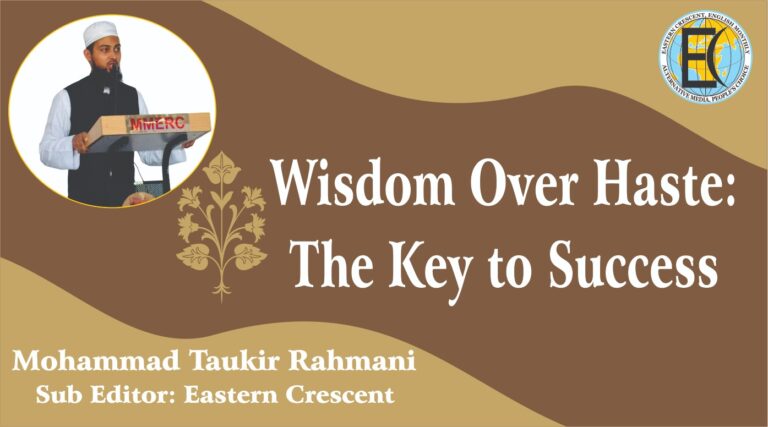 POLITICS
POLITICSWisdom Over Haste: The Key to Success
Wisdom Over Haste: The Key to Success Mohammad Taukir Rahmani EC Exclusive In today's...
 Islam
IslamRamadan: More Than a Month—A Renewal of Life and Awakening of the Soul
Ramadan: More Than a Month—A Renewal of Life and Awakening of the Soul The...
 Prophetic Injunctions
Prophetic InjunctionsLove for the Prophet Muhammad (ﷺ)
Love for the Prophet Muhammad (ﷺ) Dr. Mohd Sayeed Anwar ZHIIS, JMI, India Love...
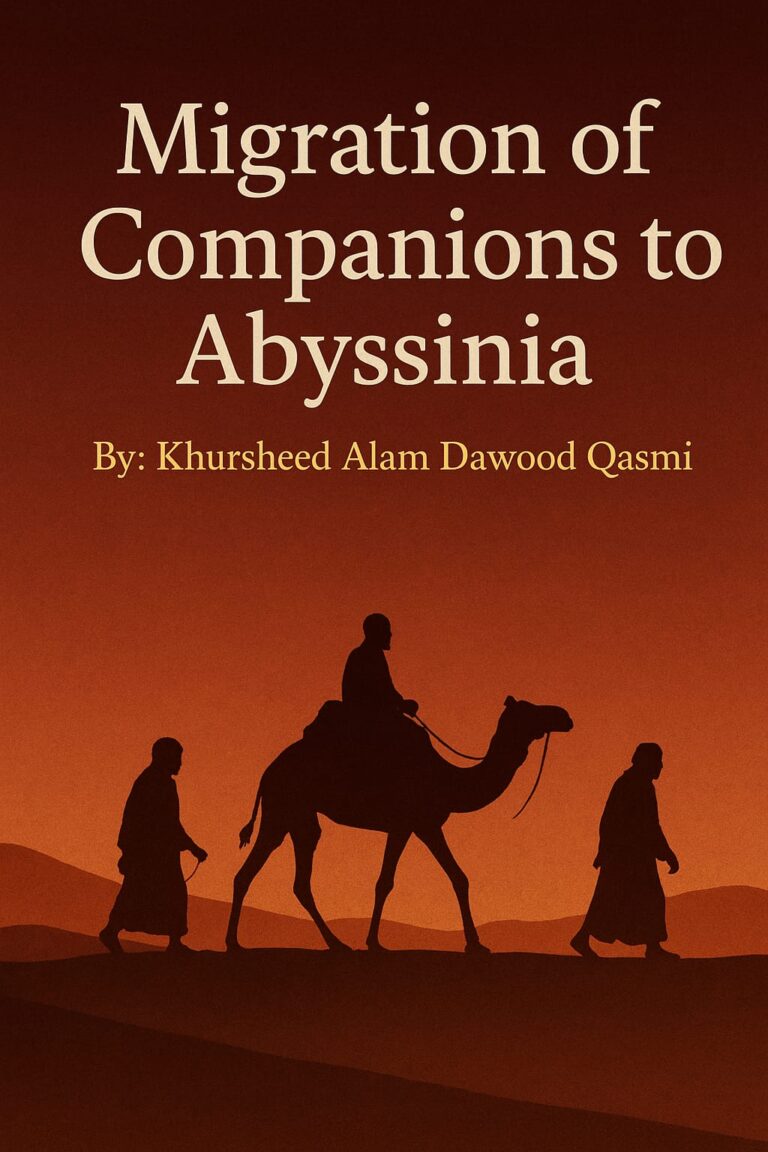 Prophetic Injunctions
Prophetic InjunctionsMigration of Companions to Abyssinia
Migration of Companions to Abyssinia By: Khursheed Alam Dawood Qasmi Opening Words: "Hijrah" is...

Comments (3)
Leave a Comment
Thanks for any other fantastic post. The place else could anybody get that type of information in such an ideal approach of writing? I have a presentation next week, and I'm on the search for such information.
I have read a few excellent stuff here. Definitely worth bookmarking for revisiting. I wonder how a lot attempt you place to make any such wonderful informative site.
Please let me know if you're looking for a article writer for your weblog. You have some really good articles and I think I would be a good asset. If you ever want to take some of the load off, I'd really like to write some content for your blog in exchange for a link back to mine. Please shoot me an email if interested. Many thanks!